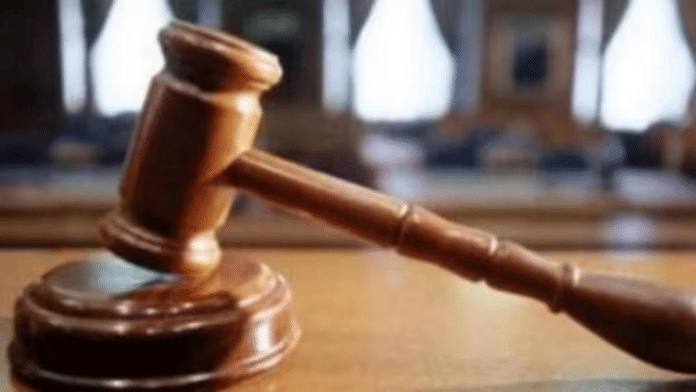Thank you dear subscribers, we are overwhelmed with your response.
Your Turn is a unique section from ThePrint featuring points of view from its subscribers. If you are a subscriber, have a point of view, please send it to us. If not, do subscribe here: https://englishdev.theprint.in/subscribe/
One term that has been argued and debated in various degrees and at various quarters these days is the ‘age of consent’. The age of consent is the age at which a person is considered legally capable of agreeing to marriage or sexual intercourse. This age is at present 18 years based on the Protection of Children against Sexual Offences (POCSO) Act, but there has been an uproar advocating lowering the age of consent to 16 years and giving adolescents sexual autonomy. The naysayers who want this lowering of age argue that a lot of romantic relationships among adolescents are getting unnecessarily criminalized due to the “misuse of laws in such cases”.
In a recent judgement, while granting bail to a person accused of enticing away a 15-year-old girl, the Allahabad High Court observed that the POCSO act was never meant to criminalise consensual romantic relationships between adolescents. For the want of a more appropriate and justified word, I will call the victim a child. As a mother of a 16-year-old year, when I imagined my daughter in this child’s position, I froze.
And then, a few days later, another article sprang up on my laptop screen about how the age of consent in India needs a relook. The article citing a study by a Trust in Bengaluru said that 93.8 per cent of romantic cases tried under POCSO ended in acquittal after a period of 1.4 to 2.3 years from the time of filing of the FIR to disposal by the court. The period cited in the article is interesting. Imagine being subjected to social stigma, lack of rehabilitation, funds, continued insensitive questioning during trials, sometimes coercion, threats and so on for so long. Victims turning hostile after months of wait doesn’t seem too difficult a puzzle to crack. I can imagine poor vulnerable girls and their families, ostracized and traumatised by society and extended families, finally giving in and regretting ever having filed an FIR.
In discussions about the age of consent, it is crucial to consider the implications of legal frameworks on vulnerable populations, particularly children.
You might question my position and credibility to have a say in the matter. I am not a lawyer but I understand a child’s vulnerability to sexual predators and I am well aware of the landmines they walk on amongst these sexual predators disguised as uncles, brothers, teachers, friends, neighbours and even fathers. I am a woman who was once a girl who walked among similar dangers and dodged a few of them too. I am a mother to a 16-year-old girl and a good friend to a lot of her friends. All these situations give me enough insight into teenagers and how their minds work. It also gives me a fair insight into how the world behaves and treats these vulnerable teenagers.
As a sixteen-year-old, my daughter and her friends love defiance which is often the only way to prove their grown-up status, weigh their peers’ opinions more than their parents, often underplay the consequences of their decisions, believe in their teenage fable where nothing or no one ever goes wrong as long as they are concerned, and quite regularly take drastic steps to test waters and challenge authority.
Meanwhile, from what I have read and understood so far, POCSO doesn’t apply to all the cases where an adolescent boy and a girl elope, so lowering the age of consent seems like a dangerous and unwanted step. It sure will free and protect a lot of abusers if this is done. In an interview with a national daily which I read recently, Supreme Court lawyer Bhuwan Ribhu said, “As the law stands today, a case of consensual sexual intercourse between two minors can only come forward when one of them (in most cases, girls) alleges that she has been subjected to sexual intercourse. In cases of elopement, the complaint is not under POCSO but under the laws of kidnapping. Charges under POCSO are not added until the girl gives her statement.”
Even if we don’t talk about the vulnerable young girls in villages and small towns who are enticed by traffickers and molesters in the garb of their well-wishers, and promised a better, safer, richer life, the very fact that a majority of the children anywhere in the country are not aware, educated or mature enough to shoulder the burden of a responsibility of consent cannot be overlooked. A child who is clueless about what subjects she likes and still trying to understand the meaning of the word sex beyond the textbook knowledge, cannot be expected to understand sexual autonomy as yet, and whether we talk about children in cities or suburbs or villages, we cannot shrug our responsibility as a society to safeguard and protect our children from any kind of abuse from anyone.
These pieces are being published as they have been received – they have not been edited/fact-checked by ThePrint.


